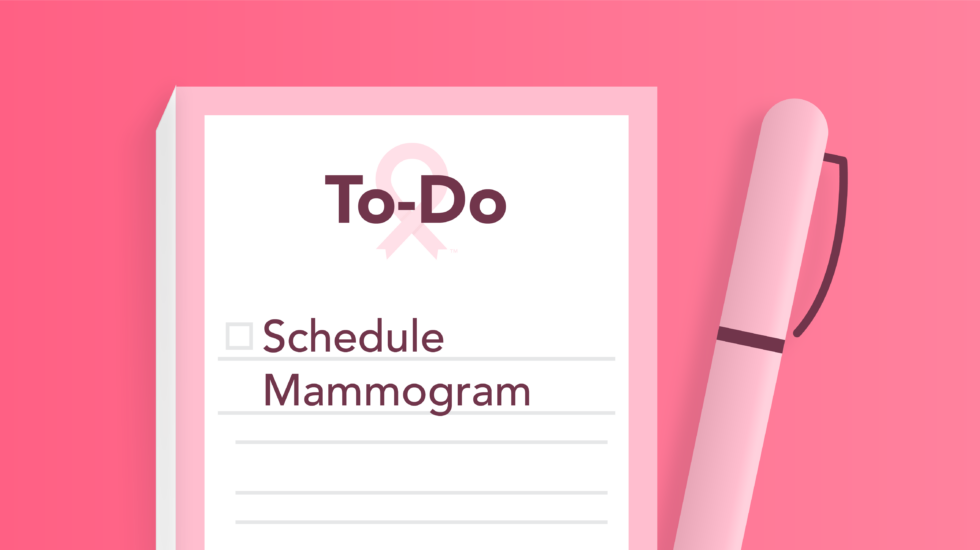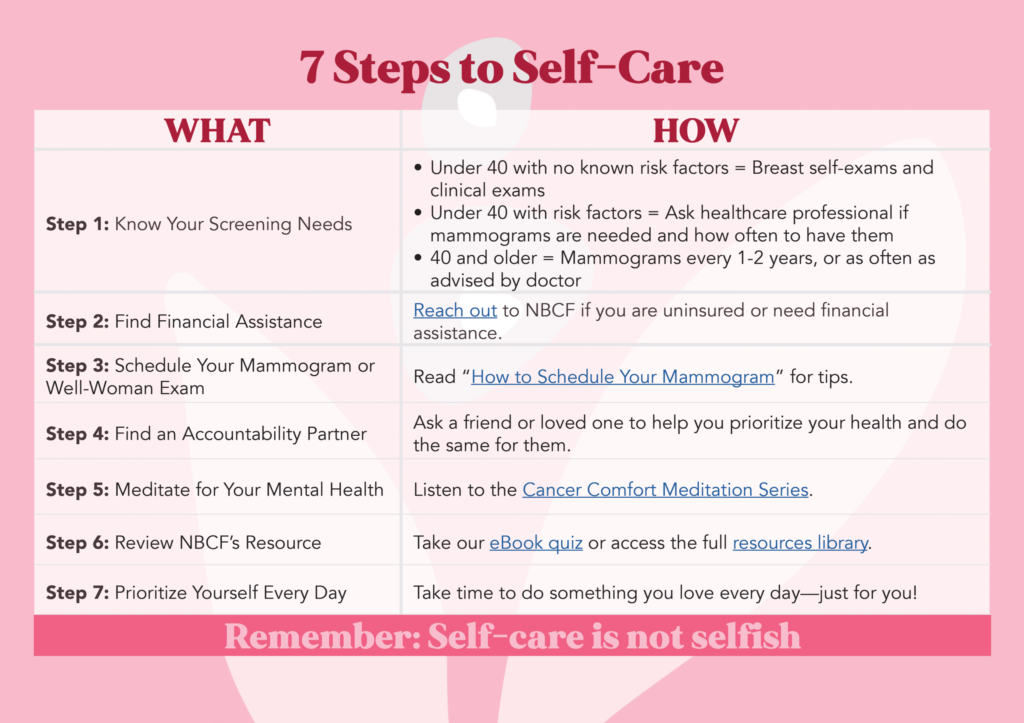


Women, often the center of the family, can be burdened by work and family responsibilities, while also trying to squeeze in self-care.
If you, too, have felt overwhelmed by the never-ending list of responsibilities, it is important to remember that you can—and should—prioritize your health, starting with routine screenings.

Learning more about how you can take ownership of your health is a step in the right direction.
As a general rule, women 40 and older should have mammograms every 1 or 2 years; your doctor can help you determine the best schedule for regular screenings.
Women younger than 40 with risk factors for breast cancer should ask their healthcare professional whether mammograms are advisable and how often to have them.
Women younger than 40 with no known risk factors should continue with clinical exams and breast self-exams.
Even women who have no symptoms and no known risks for breast cancer should have regularly scheduled mammograms to help detect potential breast cancer at the earliest possible time.
To learn more about breast cancer screenings and early detection, download our free eBook, 3 Steps to Early Detection.
If you have financial concerns, NBCF’s National Mammography Program can help. This program provides free or low-cost mammograms in partner hospitals across the country.
See if we partner with a hospital in your area, view our breast cancer resources page, or submit this form for personalized support.
Many women encounter barriers when trying to schedule a mammogram. Often, concerns over cost or not knowing who to call can be discouraging when setting up an appointment. Read our article How to Schedule a Mammogram to learn tips and essential information so you don’t miss this important exam.
Once your mammogram is scheduled, read How to Prepare for a Mammogram for tips on how to prepare before and on the day of your mammogram appointment.
Whether you’re trying to eat healthier, work out more, or prioritize your health in general, it’s often hard to stay motivated. To combat this, find an accountability partner—a friend, loved one, spouse, co-worker, or someone facing a similar circumstance. This person can help keep you stay motivated toward your goals and cheer you on every step of the way. Their simple reminders and presence may be all you need to reach your goals!
Meditation is a great way to untangle your thoughts and the emotions associated with them.
When we’re stressed or distracted by something overwhelming or frustrating, we tend to focus on our reactions. But meditation teaches us to separate ourselves from our reactions and simply observe them, without attaching emotion or creating additional stress. This awareness allows us to remain in the present moment, understand our thought patterns, and learn more about our emotions and ourselves.
Meditation Studio is offering NBCF supporters free access to the Cancer Comfort Meditation Series. Check it out here.
NBCF is dedicated to delivering comprehensive, educational information on breast health and healthy living. From understanding the importance of early detection to knowing how to prepare for a mammogram, NBCF’s online resources and guides aim to empower women and men with useful information. Start with our eBook quiz! Or see the full library of free resources here.
You can find a way, no matter how big or small, to prioritize yourself daily! You can take a 10-minute break to enjoy a cup of tea, a short walk, or a favorite blog.
You can make a gratitude list or make your own breakfast first. You can schedule things that you look forward to—getting together with a friend, a community event, or a haircut, for example—so that you find regular highlights on your calendar.
Remember: Self-care is not selfish. Ultimately, when you take good care of yourself, you’re better able to care for the others in your life, too. Self-care shows self-respect, and you’re worth it.

National Breast Cancer Foundation is here for you and your loved ones. Whether you need support, education, or help during treatment, we have a team dedicated to getting you the help you deserve.
Donations are always appreciated, but there are lots of great ways to get involved.
Your expertise and insights on this subject are truly valuable. I’m grateful that you’ve shared them and deepened my understanding.